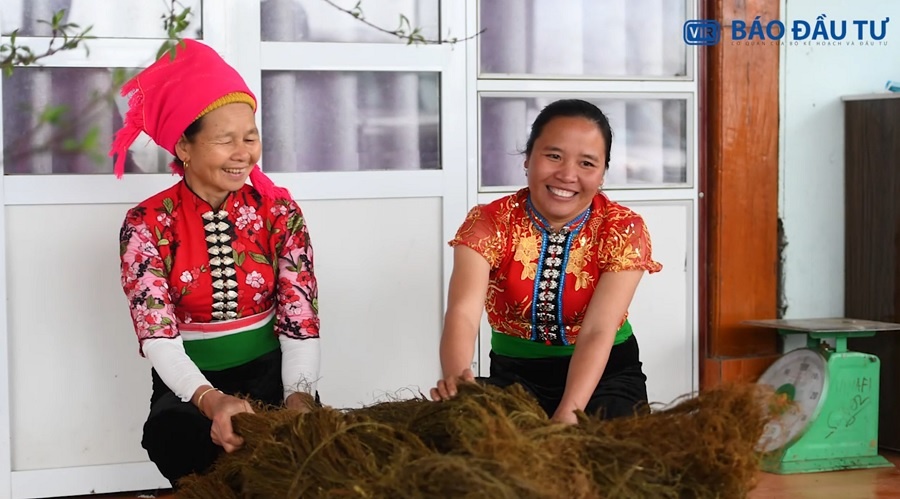Ideas shared to boost gender equality goals
 |
| Ideas shared to boost gender equality goals, illustration photo |
The misinterpretations and preconceptions about women’s ability and the importance of improving awareness of gender equality in businesses and entrepreneurship were also discussed thoroughly at the online talk show “Empowering women in business and supporting startups”.
Participants joining the talk show agreed that the preconceptions about women’s ability are the barriers to limiting enterprises’ efforts to foster gender diversity in the workplace. Le Quang Binh, director of the social enterprise ECUE, shared that after sampling 30 leading foreign-invested and domestic enterprises in Vietnam, they found that the seemingly simple process of arranging safe spaces for women to breastfeed has been met with opposition from some male managers or other employees.
According to Binh, if these employees could have a deeper understanding of gender issues as well as inequality that women suffer during the process of developing their career, these preconceptions can be broken and thereby boost strategies in gender equality.
VBCWE’s survey results from enterprises show that there are still lots of misinterpretations of the workplace gender equality concept. “Having a deep understanding of gender issues is just a necessary condition, meanwhile the sufficient condition is the active commitment from the leadership in collaboration with cooperation between state management agencies, businesses, and social organisations,” said Dinh Thi Thu Hoai, executive director of VBCWE.
Valentina Barcucci, labour economist at ILO Vietnam added, “While businesses are very well positioned to reduce gender gaps in their leadership, they cannot do it alone. Leadership from the top is essential to translate the facts and findings that we read in the brief, into action.”
A series of enterprises such as Ericsson, Alphanam, Traphaco, TNG, and Electricity of Vietnam are applying the gender equality assessment and consultancy schedule provided by VBCWE. In addition, many famous Vietnamese brands are associated with the names of eminent businesswomen, including Thai Huong of TH Group, Nguyen Thi Phuong Thao of Vietjet, and Nguyen Thi Nga from BRG Group.
Since 2021, the Programme on Benchmarking and Announcing Sustainable Companies in Vietnam organised by the Vietnam Chamber of Commerce and Industry and the Vietnam Business Council for Sustainable Development began to issue an “Outstanding Businesses Committed to Gender Equality in the Workplace” category. Recognising enterprises’ efforts to foster gender equality will be motivation for businesses to assist in their gender diversity policy.
| Bui Thi Thu Thuy - Deputy general director Agency for Enterprise Development
Female-owned enterprises in particular play an important role in driving economic growth, creating jobs and incomes for workers, and reducing poverty. From a social development perspective, these enterprises contribute to enhancing women’s status, giving women the opportunity to assert themselves, and best avail of opportunities to advance, develop their career, and generate incomes. Women’s growing engagement in business activities helps augment investment into the health and education of children, especially girls, increasing social benefits as well as the potential for future economic growth. Female enterprises are quickly grasping opportunities, yet very creative in doing business, buoyed by the gender factor. They are the pioneers towards creating a clean production practice for the sake of community health and constantly improving the quality of life for people. The acumen for seizing opportunities has made it convenient for female entrepreneurs to become the preferred option for investors for cooperation. Many products by female enterprises have been improved to match market needs. Supporting the development of female entrepreneurs will continue to be an important policy orientation of the government, especially through 2021’s National Strategy on Gender Equality. My Holland - Training vice-chair Women in Business Sector Committee, EuroCham
Currently, only 17 per cent of the nation’s large companies are run by women. Building a gender action plan involves looking into the life cycle of employees, how you attract and retain talent; how you recruit, train, offer compensation and benefits, and so on. At the organisational level, we can look into the corporate culture and leadership policies, reporting, and communication. There are some recommendations: providing training and coaching in diversity and inclusion, bias, and gender roles; offering paternity and maternity leave; and more. We have found that 83 per cent of millennials are more engaged when a company fosters an inclusive culture. At government level, we recommend increasing paternity leave. Studies show that there is a direct relationship between the length of paternity leave and gender equality in society. This helps them form a stronger bond with their children and encourages them to take on a role that involves them shouldering part of the responsibility for the children. This can help address the problem women face in Vietnam, where they are required to be superwomen. Dinh Thi Thu Hoai - Executive director, VBCWE
Before implementing solutions for women’s empowerment, enterprises need to have careful preparation, including taking the target on fostering gender equality as well as diversity and inclusion in enterprises’ sustainable development strategies. Besides, enterprises have to arrange a division that is in charge of the gender issue. Another important sector is the commitment of the board of directors and the approval from staff. After preparing these above factors, enterprises should work with consultant units or social organisations such as VBCWE and ECUE to build a tailor-made action plan for their own enterprises. This move will contribute to helping businesses to save costs compared to building and implementing action plans by themselves. Besides that, the participation of consultant units will make the implementation of the action plan become more methodical and effective. Becoming a member of VBCWE is also a way to improve the effectiveness of enterprises’ action plans. Because they will have the opportunity to gain practical business benefits from creating, perfecting and promoting a diverse and inclusive culture associated with workplace gender equality. The benefits include improving labour productivity, attracting, developing and retaining talents which largely contributes to business efficiency improvement. Besides, they will have the opportunity to join sharing hubs between the coalition’s members and learn experience and reality models from their members, from that improve the working environment towards equality and sustainable development. Especially, becoming a coalition member will ensure enterprises become one of the pioneers in building a diverse and inclusive corporate culture for the goal of sustainable development. Meanwhile, the criteria for joining the coalition are quite simple. Notably, they have legally registered enterprises or organisations in Vietnam, and simultaneously comply with the laws of Vietnam. They are not on the blacklist of the Vietnamese government, World Bank, Asian Development Bank, Australian Department of Foreign Affairs and Trade, or other international organisations. Another criterion is not to be involved in manufacturing or trading products related to drugs, casinos, or the adult entertainment industry, and that they participate in an initial assessment of workplace gender equality. While working with enterprises, we are aware that both foreign-invested and domestic groups are paying attention to gender issues in the workplace environment. According to our observations, a lot of enterprises are taking gender equality more seriously in their long-term development strategies. They also build clear action plans to make gender equality become part of the business culture. Michele Wee - CEO, Standard Chartered Bank Vietnam
Women play a key role in the socioeconomic development of a nation. Equipping women with education and equal opportunities will help them learn, earn, and grow. This will also translate into socioeconomic benefits for the country’s successful sustainable development. We believe that to accelerate change, gender needs to stop being treated as only a woman’s issue. For organisations to be truly inclusive and minimise disparities, they need to engage all genders, and enable women and men to make the necessary behavioural changes. Gender equality provides men and women freedom to share financial responsibilities with one’s spouse or partner; more rewarding and intimate relationships with spouse or partner; freedom to parent more substantively; more rewarding relationships with children; freedom to define oneself according to one’s own values rather than traditional gender norm; and better psychological and physical health. Companies must enlist both women and men to work together as allies in changing the organisational norms and structures that perpetuate gender gaps. Focusing exclusively on women, rather than engaging men, risks the unintended consequence of alienating men and jeopardising the success of their many gender initiatives. As a leader of an organisation, I see my responsibility in creating a working environment that embraces diversity and inclusion, where everyone feels valued and respected for what they bring to the company, regardless of their age, gender, nationalities and race. This is the commitment of the bank from the group level and every leader also needs to make personal commitment to that. Within the organisation, we have multiple initiatives to promote gender equity, such as couching and mentorship programmes, global learning week, employee assistance programmes, hybrid working models, and more. |
What the stars mean:
★ Poor ★ ★ Promising ★★★ Good ★★★★ Very good ★★★★★ Exceptional
Themes: Empowering Women
- Female influence still to be attained
- Shaping Vietnam's corporate future: female board members show business excellence
- Nestlé Vietnam contributes to elevating the role of women across the supply chain
- Empowering female leaders in tech: insights and aspirations shared at KPMG Tech Innovator 2023
- Brighter Path programme hosts empowerment meeting for ethnic minority girls
Related Contents
Latest News
More News
- Masan Consumer names new deputy CEO to drive foods and beverages growth (February 23, 2026 | 20:52)
- Myriad risks ahead, but ones Vietnam can confront (February 20, 2026 | 15:02)
- Vietnam making the leap into AI and semiconductors (February 20, 2026 | 09:37)
- Funding must be activated for semiconductor success (February 20, 2026 | 09:20)
- Resilience as new benchmark for smarter infrastructure (February 19, 2026 | 20:35)
- A golden time to shine within ASEAN (February 19, 2026 | 20:22)
- Vietnam’s pivotal year for advancing sustainability (February 19, 2026 | 08:44)
- Strengthening the core role of industry and trade (February 19, 2026 | 08:35)
- Future orientations for healthcare improvements (February 19, 2026 | 08:29)
- Infrastructure orientations suitable for a new chapter (February 19, 2026 | 08:15)





 Tag:
Tag:



















 Mobile Version
Mobile Version